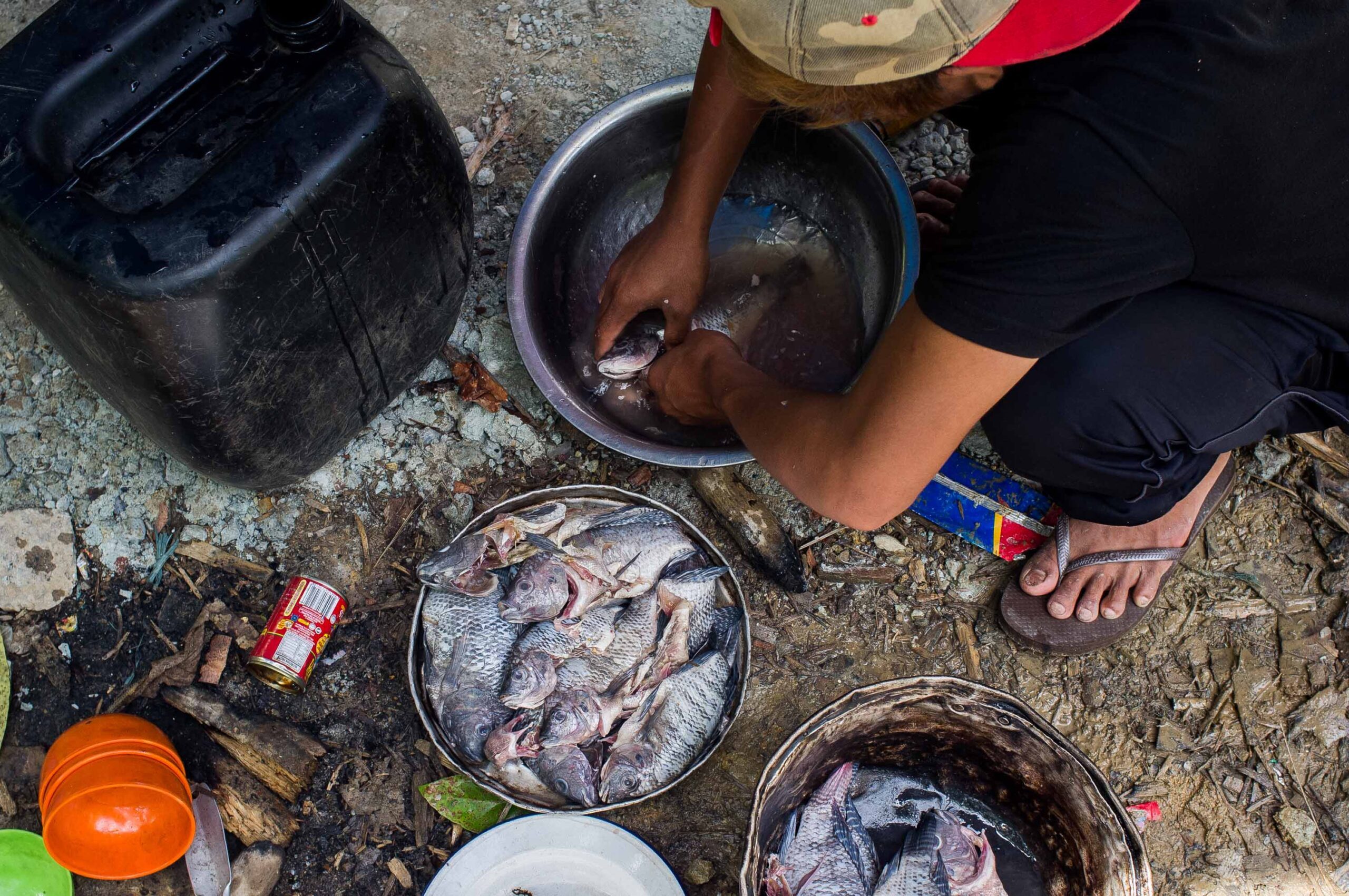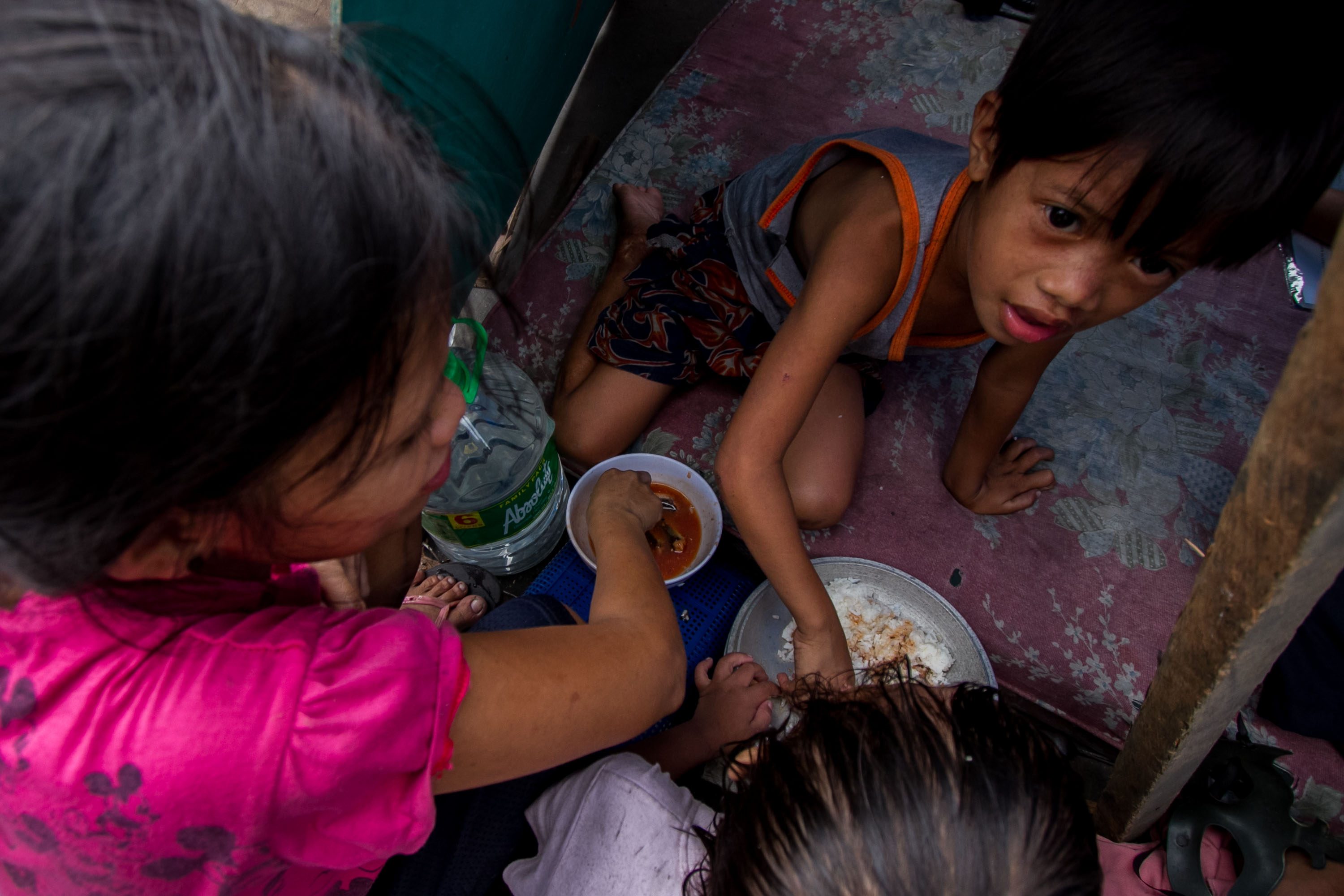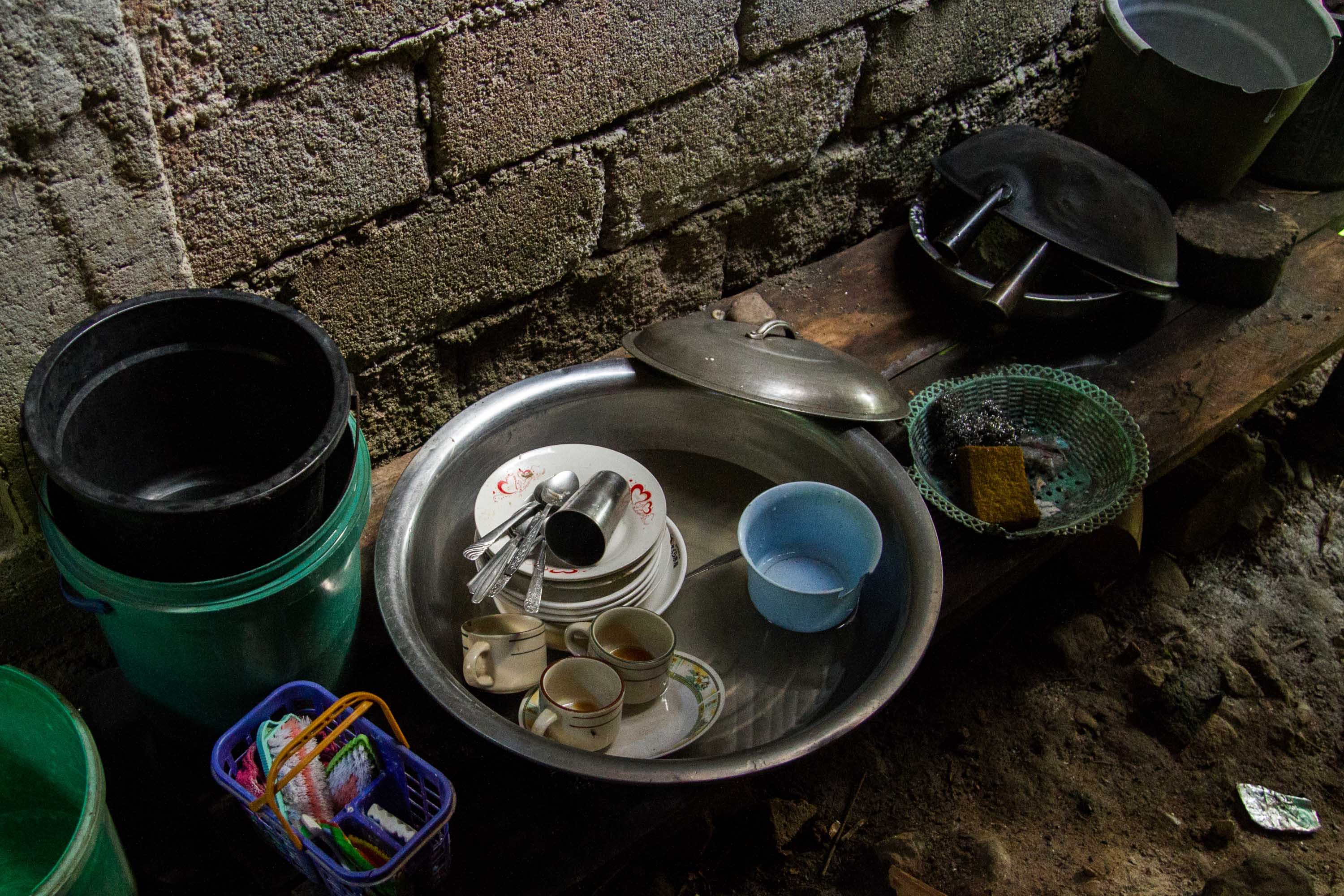SUMMARY
This is AI generated summarization, which may have errors. For context, always refer to the full article.

MANILA, Philippines — The day starts at 4 am for Allaga family. Lito, the head of the home, must prepare for his work in a construction site in Bonifacio Global City as a common laborer. His wife prepares his coffee and packs cooked rice for his lunch. His son, Renan is also getting ready for school, with just coffee and a piece of pandesal (bread) in his stomach.
Lalaine, the mother, works as a volunteer barangay (village) health worker. “It is better this way than do nothing at all and stay inside the house the whole day,” she said in Filipino.
While cleaning small fish for lunch, Lalaine recalled how they decided to settle in Metro Manila from Surigao where they used to farm a small parcel of land.
“Mahirap ang buhay doon kaya kami umalis. Kailangan naming mangutang ng binhi at abono para makapagtanim. Kapag binagyo pa at napeste ay ‘di wala na. Uutang ka ulit hanggang mabaon ka na sa utang,” said Lalaine.
(Life is hard that’s why we left. We need to get grains and fertilizer on credit. Then when the storms and pests ravage the land, nothing will be left. We’ll ask for more credit until we’re deep in debt.)
“Minsan nga nakakapagtaka, kung sino pa ‘yung nagtatanim kami pa ‘yung walang makain,” she added.
(Sometimes it makes me wonder, peasants are the ones who have nothing to eat.)
Lito and Lalaine migrated to Quezon City 3 years ago. Without enough money, they rented a small shanty in an urban poor community along Agham Road. Lito earns P250 ($5.35) a day in his job as a construction worker. But because he is not a regular employee, there are times that he has to wait for a month or two before getting a job order.
“Madalas pinagkakasya namin kung anong meron. Kapag wala, hindi na kami kakain ng umagahan at tanghalian. Sa gabi na lang kami babawi para kahit papaano, hindi kami matutulog ng gutom,” Lito said.
(I try to make both ends meet. If there is nothing, we will not eat breakfast and lunch. We will just have the evening meal. At least we will not sleep with an empty stomach.)
While cooking the fish for lunch, Lalaine admitted that she was not sure of what to eat for dinner yet. With few coins left in her wallet, she was thinking of buying kropek (fish crackers), a good partner for rice, she claimed.

On forced diet
Daniel Gonzaga, a 3rd year high school student, lives in a small wooden house along the Pasig River. Every day before going to school, Daniel goes to a neighboring village where a vacant lot is located. He checks for root crops available for harvest and banana which were planted by his late grandmother who was a caretaker of that lot.
If he is lucky, he has something to eat for the rest of the day. “Sanay na ako na kamote kinakain sa tanghali kapag nasa school ako, tinitipid ko kasi yung binibigay sa akin ng nanay ko. Iniipon ko na lang para sa biglaang gastos sa eskwela. Minsan kasi, wala ring maibigay si Nanay,” said Daniel.
(I am used eating sweet potato at noon in school. I would rather save the money which my mother gives me. I am saving it for expenses in school. Sometimes, my mother doesn’t have money to give me.)
In one of the public elementary schools in Mandaluyong City, an 11-year-old student picks up garbage from houses near his school in exchange for a lunch treat. Eli Ridon started doing the garbage collection since he was 9. “
Wala po akong pambili ng pagkain, madalas ko po itong gawin para ‘di ako magutom,” said Ridon.
(I do not have money for food. I often do it so that I am not going to starve.)
Both Daniel and Eli experience going to classes with an empty stomach. Driven by their dreams to finish studies and have a better life in the future, both students recognize that they have to do these sacrifices in pursuing their objectives.
Action in little ways
It was just last January when Renato Manuel decided to leave his work in Singapore as an architect and go back home. Leaving the job and the country that fed his family for years was never easy. There was something back in his home town that convinced him.
“Matagal ko nang pangarap na makapagsaka. Iyon kasi ang kinamulatan ko. Pero ang talagang nakapagbuo ng desisyon ko na umuwi at mag-invest sa bukid at pag-aalaga ng mga hayop ay ‘yung reality na ang mga kabataan ngayon ay mas pinipiling magtrabaho sa mga kompanya kesa sa bukid,” said Renato.
(I had always dreamed of farming. I grew up with that. But what really made me decide to go home and invest in farming was the reality that our youth today choose to work in companies rather in farms.)
“Kung walang gagawa nito, wala na tayong kakainin,” he added.
(If no one will do this, we will have nothing to eat.)
He left Singapore and settled in Bulacan to farm and to raise hogs. He said the idea came to him when he heard news about the Philippines and problems with poverty.

“Lagi nating napapanood sa TV at naririnig sa balita na kahit gumaganda ang ekonomiya ay marami pa rin ang nagugutom, kaya naisip ko na umuwi na lang sa Pilipinas. Magtatanim na lang ako, madagdagan man lang ang mga taong nag-aambag sa agrikultura.”
(We always see on TV and hear on the news that even though the economy is booming, there are still lots of people starving. That’s why I decided to come back to the Philippines. I will farm, and do my part to help the agriculture industry.)
“I think the government should focus on the basics, on agriculture. We cannot be like Singapore if the industry which feeds the country is not sustainable,” Renato said. – Rappler.com
Add a comment
How does this make you feel?
There are no comments yet. Add your comment to start the conversation.